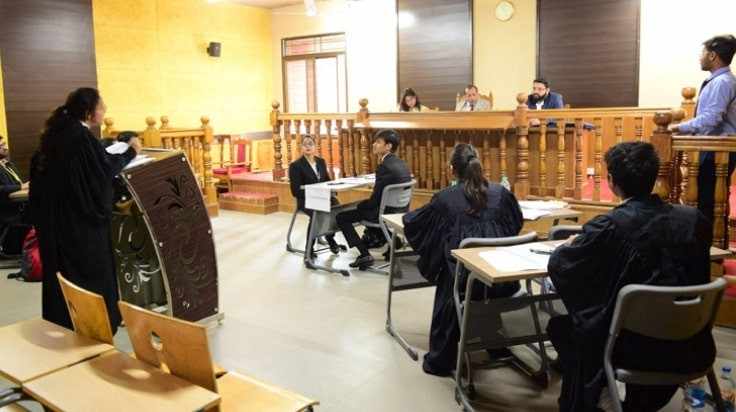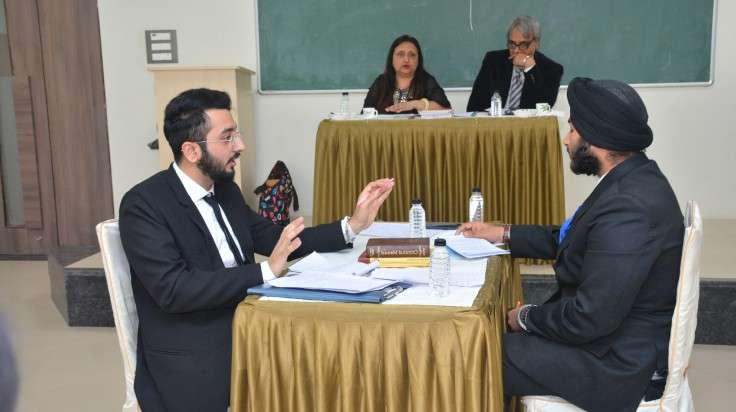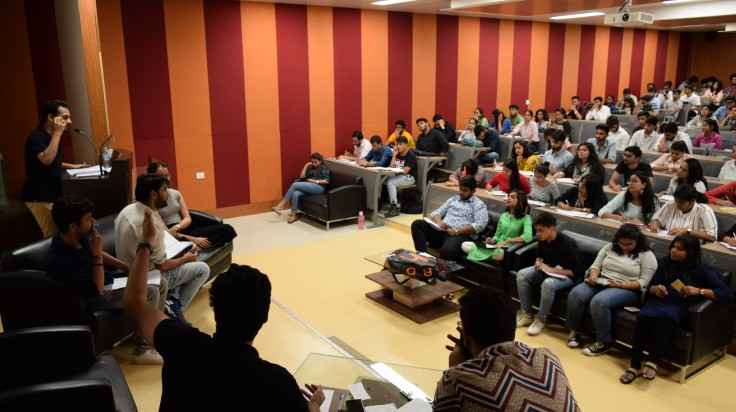LL.B. to Judiciary: A Guide to Preparing for Judicial Services Exams
- UPES Editorial Team
- Published 26/09/2024

The journey from an LL.B. graduate to becoming a judicial officer is both challenging and rewarding. Judicial Services Exams are a gateway to this prestigious role, offering a stable and respected career in the judiciary.
However, the path to clearing these exams requires dedication, strategic preparation, and a deep understanding of the law. This guide is designed to help you navigate the process effectively, ensuring that your hard work translates into success.
Crack Judiciary: Understanding Judicial Services Exams
Overview of the Exams
Judicial Services Exams are conducted by state governments to recruit judges for the lower courts. These exams are a critical step in maintaining the judicial system’s integrity, as they ensure that only the most qualified and capable candidates are selected.
Types of Judicial Services Exams
There are two main types of Judicial Services Exams:
- Lower Judicial Services (PCS-J): This is for fresh law graduates who wish to join the judiciary at the entry-level.
- Higher Judicial Services (HJS): This is for practicing advocates with a specified number of years of experience, typically ranging from 7 to 10 years.
Eligibility Criteria
To sit for these exams, candidates must meet certain eligibility criteria, including age limits (usually between 21-35 years for PCS-J and higher for HJS) and educational qualifications (a degree in law from a recognized university).
Syllabus and Exam Pattern
Preliminary Exam
The preliminary exam is the first hurdle in the judicial services selection process. It usually consists of objective-type questions covering various subjects like General Knowledge, English, and basic laws. This stage is primarily for screening purposes, and only those who clear it are eligible for the mains exam.
Main Exam
The main exam is more comprehensive and involves subjective questions that test a candidate’s in-depth knowledge of law. The subjects typically include Civil Law, Criminal Law, Constitutional Law, and other state-specific laws.
Interview/Viva-Voce
The final stage of the selection process is the interview or viva voce. This is designed to assess the candidate’s personality, legal acumen, and ability to handle the responsibilities of a judicial officer.
When to Start Preparing for a Judiciary Law Exam?
The ideal time to start preparing for Judiciary is DEFINITELY in law school, pursuing a B.A. LL.B., BB.A. LL.B., LL.B. or LL.M. The exam is tedious, unpredictable, and difficult with no organized schedule. While it may seem easier to focus on exam preparation after graduation, starting your preparation while still in law school can be a strategic advantage. It saves time and gives you a head start in the competitive process.
Key Subjects to Focus On
Core Law Subjects
- Indian Penal Code (IPC)
- Civil Procedure Code (CPC)
- Criminal Procedure Code (CrPC)
- Indian Evidence Act
Crack Judiciary: Tips for Preparing for the Judicial Services Examination
- Shortlist the States You wish to Take the Exam for
- Analyze the Syllabus and pattern of the Exam (each state has a unique syllabus, pattern, and state laws)
- Go thoroughly through the PYQs
- Have a very clear and definitive timetable
- Begin with Mains Preparation. Preparation of Prelims will be automatically covered.
- Use flashcards, summaries, and mind maps for revision
- Master the Bare Acts. Revisit them every day.
- Attempt as many Mock Tests as possible
- Incorporate Newspapers into your daily reading habit
- Say No to Rote Learning. Focus on building clear concepts
- Revise as many times as possible
- Bank upon your notes instead of someone else’s.
- Maintain a Balanced lifestyle. Falling sick will only hamper your progress
PRO Tips to Solve MCQs Correctly in Judiciary Prelims Exam
- If there is NO Negative marking, attempt as many questions as possible.
- Don’t attempt doubtful MCQs, if there is negative marking.
- Your GUT knows the correct answer. Trust it.
- In case of -vely worded questions, apply the True & False method to solve it.
- Read the questions TWICE. Don’t miss words like “not”, and “except”.
- Tips to Master Judiciary Mains Exam
- Practice answer writing DAILY. Use a Timer while writing.
- Make sure to practice 2-3 PYQs for Mains EVERY WEEK.
- Get answers checked by Teachers or Mentors.
- Immediately Jump to Mains Preparation post Prelims.
- Maintain Language Proficiency, in both English and Vernacular.
Conclusion
Entering into the Journey of preparation for the Judicial Services Examination can be daunting. However, with the right methodology, anybody can crack it! A good standard of legal pedagogy from an institution of repute goes a long way in creating a solid foundation. It’s always beneficial to keep your concepts clear. Follow the tips in the Blog and you will be good to go! Believe in yourself.
Become future-ready with our Law programs
Know More
Our counsellors are just a click away.
UPES Editorial Team
Written by the UPES Editorial Team
UPES Admission Enquiry
Subscribe to UPES Blogs
Join our community for exclusive stories, insights, and updates
By clicking the "Subscribe" button, I agree and accept the privacy policy of UPES.


























